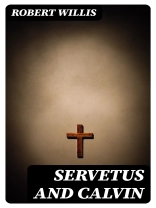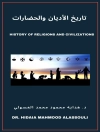In ‘Servetus and Calvin, ‘ Robert Willis intricately explores the profound theological conflict between two influential figures of the Reformation: Michael Servetus and John Calvin. Utilizing a blend of historical narrative and critical analysis, Willis delves into the ideological rift that distinguishes their views on the nature of God, the Trinity, and the essence of faith. The book is marked by a meticulous examination of primary sources and the socio-political milieu of 16th-century Geneva, capturing the charged atmosphere of religious fervor and intellectual challenge that characterized this period. Through clear prose and a structured approach, Willis provides readers with an accessible yet thoroughly academic treatment of this pivotal moment in Christian history. Robert Willis, a distinguished theologian and historian of early modern Europe, draws on his extensive expertise in Reformation studies to present a balanced perspective on these two luminaries. His background, marked by years of research and engagement with primary texts, equips him to navigate the complexities of their interactions. This work is not only a reflection of historical events but also an exploration of how personal convictions can shape theological discourse in profound and sometimes deadly ways. ‘Servetus and Calvin’ is indispensable for scholars and general readers alike, offering valuable insights into the interplay of faith, power, and dissent in the Reformation era. Willis’s careful scholarship invites readers to engage in critical reflection on the legacy of these figures, making this text a vital addition to any theological library.
Circa l’autore
Robert Willis, a historian and writer with a profound interest in theological history, is best known for his comprehensive examination of the ideological and personal conflict between Michael Servetus and John Calvin in his book ‘Servetus and Calvin’. Willis’s scholarship digs deep into the intellectual milieu of the Reformation era, tracing the intricate theological debates and the fateful intersection of two of its most intriguing figures. His work is characterized by a meticulous attention to historical detail and a balanced approach to what has often been a controversial chapter in religious history. As an author, Willis excels in bringing to light the complexities of doctrinal disputes and ecclesiastical politics that defined the period. His writing style combines academic rigor with a narrative that captures the gravity and drama of theological confrontations. While ‘Servetus and Calvin’ remains his most prominent contribution to historical theology, Willis’s wider body of work continues to inform and influence scholars interested in the interplay of religion, politics, and ideas during the profound transformations of the 16th century. His literary contributions provide valuable perspectives on the human dimensions of religious reform and the enduring consequences of theological dissent.




